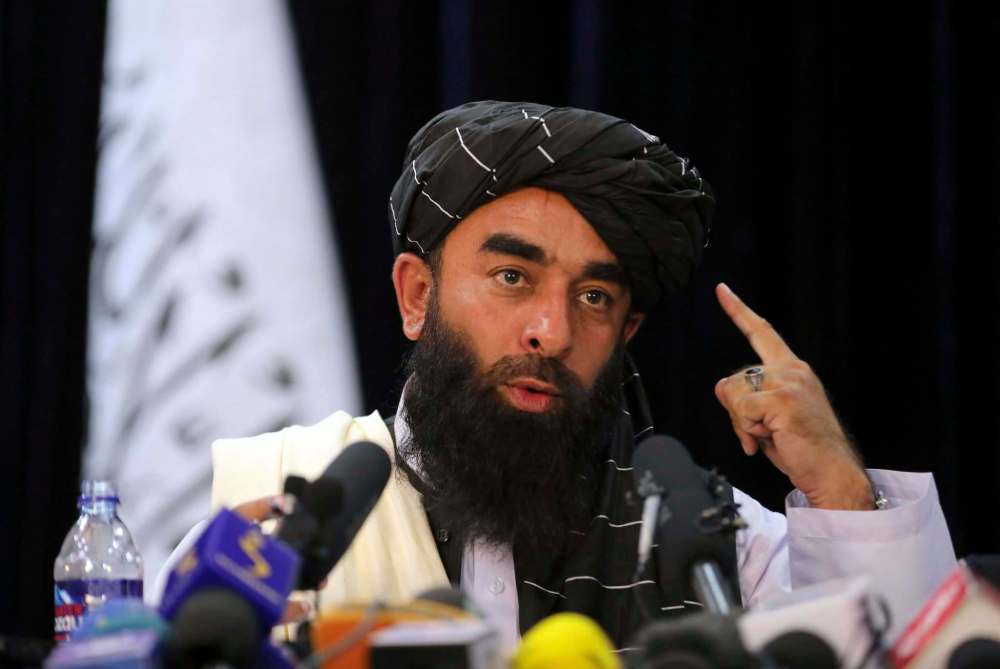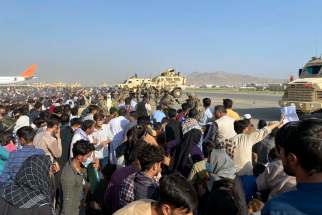Vows of moderation merit extreme skepticism
Read this article for free:
or
Already have an account? Log in here »
To continue reading, please subscribe:
Monthly Digital Subscription
$0 for the first 4 weeks*
- Enjoy unlimited reading on winnipegfreepress.com
- Read the E-Edition, our digital replica newspaper
- Access News Break, our award-winning app
- Play interactive puzzles
*No charge for 4 weeks then price increases to the regular rate of $19.00 plus GST every four weeks. Offer available to new and qualified returning subscribers only. Cancel any time.
Monthly Digital Subscription
$4.75/week*
- Enjoy unlimited reading on winnipegfreepress.com
- Read the E-Edition, our digital replica newspaper
- Access News Break, our award-winning app
- Play interactive puzzles
*Billed as $19 plus GST every four weeks. Cancel any time.
To continue reading, please subscribe:
Add Free Press access to your Brandon Sun subscription for only an additional
$1 for the first 4 weeks*
*Your next subscription payment will increase by $1.00 and you will be charged $16.99 plus GST for four weeks. After four weeks, your payment will increase to $23.99 plus GST every four weeks.
Read unlimited articles for free today:
or
Already have an account? Log in here »
Hey there, time traveller!
This article was published 20/08/2021 (1575 days ago), so information in it may no longer be current.
The assurances have been something less than convincing, and there are already too many instances in which words and actions seem to be alarmingly at cross-purposes.
As such, all promises of moderation and mercy from the Taliban leadership in the wake of the group’s startlingly rapid takeover of Afghanistan must be viewed with the highest possible level of skepticism. And all obligations to assist and protect Afghan citizens who have aided the international coalition that has occupied that country for the past 20 years must be attended to with an extreme sense of urgency.

Last Tuesday in Kabul, after Afghan security forces had once again cut and run, allowing the Taliban to effortlessly seize control of the capital, spokesman Zabihullah Mujahid seemed to promise a kinder, gentler Taliban than the one that so ruthlessly ruled Afghanistan a couple of decades ago. He vowed that those who worked as interpreters and in other support roles for the U.S. military and other international forces would face no reprisals, that media would be allowed to broadcast freely and that women would be afforded the freedom to work and study “within the framework of Islam.”
At around the same time the promises were being made, a woman was being shot and killed by a Taliban fighter for venturing out in public with her head uncovered.
Since the Taliban secured Kabul, numerous reports have described door-to-door searches for foreign-forces collaborators, civilians being impeded and even shot while trying to access the airport in hope of finding a way out of Afghanistan, and fighters opening fire on protesters demonstrating against the Taliban takeover.
It’s incumbent on the international community — Canada included — to demand that the Taliban’s leadership fully live up to whatever cursory assurances it has offered in the hope of being recognized as Afghanistan’s legitimate government. Prime Minister Justin Trudeau took the correct first step on Tuesday when he said Canada has no plans to recognize the Taliban, as it had “taken over and replaced a duly elected democratic government by force.”
Some manner of diplomatic posturing and discussion are sure to follow as the idea of a Taliban-controlled Afghanistan becomes a longer-term reality; in the meantime, Mr. Trudeau’s immediate priority must be getting as many of the 6,000 stranded souls on Canada’s “rescue list” out of Afghanistan and onto much safer soil.
The prime minister admitted Thursday this might be a task not easily accomplished, as safe exit from Kabul’s overwhelmed airport remains an uncertain proposition. “We will get some, certainly, but to get many people out, as many as we’d want, is going to be almost impossible in the coming weeks,” he said, adding Canada will look for assistance from its allies in the region.
In recent weeks, Canada has successfully negotiated nine flights out of Afghanistan, evacuating all diplomatic officials and a number of Afghan citizens. Canada has vowed to accept more than 20,000 Afghans who have already fled the country and are now in refugee camps or other locations.
Much, much more needs to be done. For evidence of the gravity of the situation on the ground, one need only look beyond the Taliban’s early promises and focus on the scenes at Kabul’s airport, where some Afghans’ desperation for a way out prompted them to cling to departing aircraft as they left the ground and angled skyward.
Their forlorn effort ended as it only could. That they opted for such a terrible fate is forcefully illustrative of the value Afghans place on Taliban vows of moderation and mercy.
















